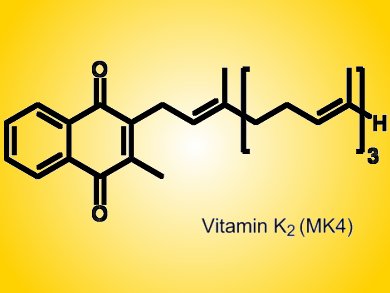Mitochondria use electrons transfer to produce ATP and regulate cellular energy metabolism via the electron transport chain situated in their inner membrane. Defects in this process promote development of neurodegenerative diseases. Mutations in the gene encoding PTEN-induced putative kinase 1 (Pink1), a protein that signals mitochondrial dysfunction, cause familial forms of Parkinson’s disease.
Melissa Vos, VIB Center for the Biology of Disease, Leuven, Belgium, and colleagues, using a Drosophila fruit fly model, discovered that vitamin K2, by acting as electron carrier in the electron transport chain, allows an efficient ATP production and mitochondrial function. As a consequence, it can rescue mitochondrial defects caused by Pink1 deficiency. In flies lacking this gene, a diet rich in vitamin K2 or its enhanced synthesis from menadione, ameliorated mitochondrial deficits and improved the flies’ locomotion.
Vitamin K2 might represent a promising treatment for mitochondrial pathologies such as neurological disorders.
- Vitamin K2 is a mitochondrial electron carrier that rescues pink1 deficiency,
M. Vos, G. Esposito, J. N. Edirisinghe, S. Vilain, D. M. Haddad, J. R. Slabbaert, S. Van Meensel, O. Schaap, B. De Strooper, R. Meganathan, V. A. Morais, P. Verstreken,
Science 2012, 336(6086), 1306–1310.
DOI: 10.1126/science.1218632




